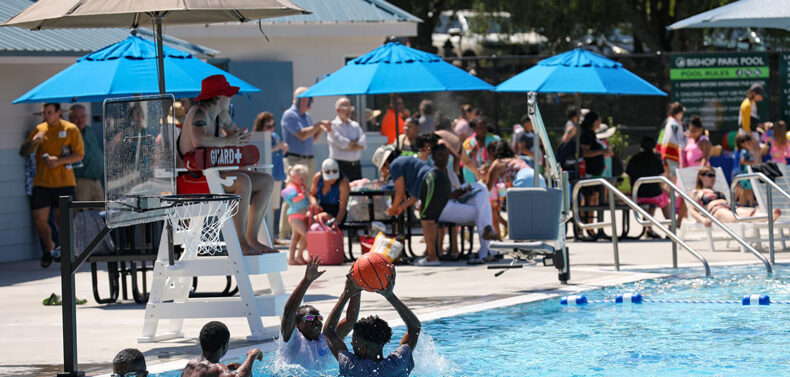July is always hot, but are you noticing symptoms of heat stress? Heat-related deaths are on the rise, according to the World Health Organization. It’s worth knowing the early signs of heat-related illnesses to quickly correct course and avoid a trip to the emergency room. Here are a few tips for working outside safely:
• Wear long sleeves and keep covered. It’s counter-intuitive, but covering up is one of the best ways to keep cool. Keeping the sun directly off your skin helps avoid skin cancer as well, so it’s a good two-fer. The label “moisture-wicking” doesn’t mean much (like “all-natural”), and there’s no way to tell if that synthetic shirt will really keep you feeling cooler without testing it out. I personally prefer baggy cotton shirts, but I have friends who swear by the popular synthetic back-vented fishing shirts. Plenty of runners pick tight-fitting synthetic options as well. It’s worth your while to find a few options in a thrift store and try them out for yourself. Don’t forget a wide-brimmed hat to keep the sun off your face and neck.
• Acclimatize yourself—to a point. Gardening in the heat means I get up earlier in the morning and take my morning breaks in the shade instead of going inside. I still enjoy lounging in my AC in the afternoon when it feels like 105 degrees outside. This might feel like cheating to you. My Cajun grandfather would certainly think so. He declared air conditioning fit only for the feeble of mind and body. His Southern Louisiana home boasted a single window unit in one bedroom for his soft children and grandchildren to share. But AC helps our bodies cool off, especially when we’re experiencing record-breaking heat. It’s not a good idea to go from a couch potato to running a marathon, and it’s not a good idea to zoom around the garden on a 95-degree afternoon following a work day in a 76-degree office. Take it easy on yourself, and leave the strenuous chores for fall.
• Know the signs of heat stress for yourself and pets. Knowing your limits when it comes to heat is important. There’s a point where you’re not going to “power through” anything without your body functioning normally. If you find yourself getting confused, dizzy, nauseous or sweating too much, or if you completely stop sweating, it’s time to bring that core temperature down. Cold showers or applying ice packs to the wrists and the neck can help as well. Children, seniors and people with chronic conditions (like asthma or heart conditions) are more susceptible to heat stress. Pets will show signs of heat stress through excessive panting, red gums, vomiting or diarrhea. They may also appear lethargic or drool too much. It’s important to contact your doctor or veterinarian if you take steps to cool down a person or pet and their condition does not improve.
• Follow advice from hot-weather cultures. I worked with Gomez, a man from the “Tierra Caliente” part of Mexico, on a farm several years ago. For him, Georgia summers were easily borne. He said short, cold showers multiple times a day got him through working on his family’s farm in the low-elevation, landlocked region of Southern Mexico he called home. Since I started following his advice, I’ve branched out to other hot-climate experts for their tips. Spicy meals including plenty of chili peppers can help induce sweating, making the after-meal experience cooling. Making mixed drinks with plenty of ice, more mix and less alcohol than normal scratches the itch of a celebratory drink without leaving behind the dehydrating effects of a hangover. My tinto de verano is three-fourths verano to one-fourth red wine and still delicious.
• Recognize that everyone has different limits. I worked on a Vermont farm making Gouda cheese for a summer years ago. Heat warnings went out any time the thermometer tripped over 80 degrees. At first, I thought it was a joke, but my boss took it very seriously, reminding all her workers to stay hydrated. One person’s fine summer day could be another’s breaking point. If you see someone struggling in the heat, you can suggest they take a break to cool down. The Athens-Clarke County website does post severe weather information and lists where to find places to stay cool at accgov.com/weather.
Like what you just read? Support Flagpole by making a donation today. Every dollar you give helps fund our ongoing mission to provide Athens with quality, independent journalism.










